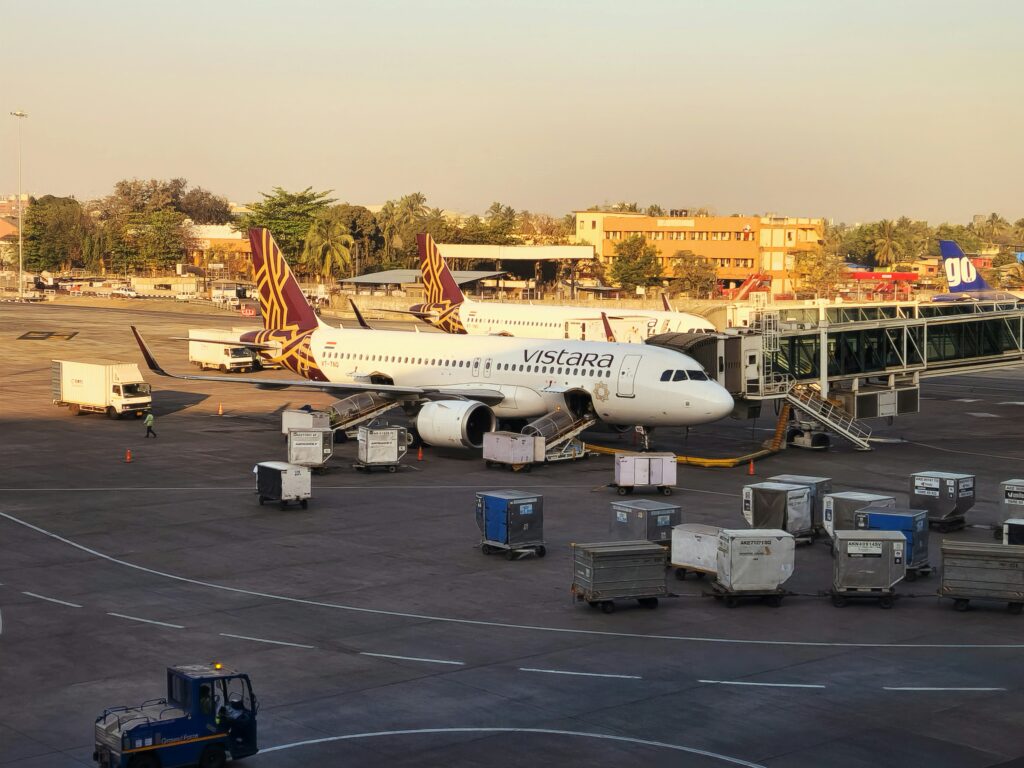India is one of the fastest-growing aviation markets in the world. According to the Directorate General of Civil Aviation (DGCA), the country is expected to become the third-largest aviation market in the world this year. The Indian government’s push towards improving its regional connectivity through funded schemes like UDAN (Ude Desh Ka Aam Nagrik) has helped to accelerate the sector’s expansion.
As the country becomes a major global hub for aviation, the demand for skilled aircraft engineers has also seen a significant rise. This blog examines the current market for aircraft engineers in India, exploring job opportunities, required skills, challenges, and future prospects.
Indian airlines are placing record aircraft orders and there is a huge amount of infrastructure development going on at an unprecedented pace, including new airports, aerospace hubs, MRO facilities and hangar construction. According to Aviation Week Network data, Indian airlines are expected to take delivery of over nearly 1,400 new aircraft over the next decade, with 77 deliveries scheduled during 2025.
Furthermore industry analyst AeroDynamic Advisory predicts that Indian carriers’ scheduled capacity will increase by 20% this year over 2024 traffic, driven by new deliveries and the re-introduction into service of parked Pratt & Whitney turbofan-powered aircraft, currently grounded by engine issues.
In support, India’s Maintenance, Repair and Overhaul (MRO) industry is rapidly evolving to meet new and increasing demands, as domestic airlines continue to add new aircraft. Ratings agency, Crisil, forecasts that the Indian MRO industry is expected to see revenue grow 50% in 2026 to approximately $518 million. Key drivers of this growth include:
- Rising disposable incomes, fuelling demand for air travel.
- Government policies promoting infrastructure development in aviation.
- The emergence of low-cost carriers (LCCs), making air travel more affordable.
- Increased foreign investment in domestic airlines and MRO facilities.
For aircraft engineers in India, all this means that there is a very healthy market for job opportunities across many different parts of the aerospace sector:
- Airlines
Major carriers such as IndiGo, Air India, SpiceJet, and Vistara will need to hire more licensed aircraft maintenance engineers (AMEs) to maintain their fleets.
- MRO providers
Air India Engineering Services Limited, GMR Aero Technic and Air Works account for almost 90% of the Indian MRO sector’s revenue. The predicted 50% revenue growth (noted above) is also based on recent changes in government policy that will benefit the MRO industry, such as the reduction in goods and service tax on aircraft components and services. The reduction has led to lower rental costs and eliminated royalty charges on revenue, making India an attractive destination for MRO operations.
- Defence and aerospace
Organisations like Hindustan Aeronautics Limited (HAL) and the Indian Air Force, for example, are recruiting AMEs for their military fleets.
- Aircraft manufacturing and R&D
Companies such as Tata Advanced Systems and Boeing India have been expanding their footprint in India, creating demand for aeronautical engineers.
- Regulatory authorities
DGCA and other aviation regulatory bodies require technical experts to oversee safety compliance and regulations.
To become an aircraft engineer in India, one must possess the right qualifications and technical expertise. The key educational pathways include:
- Aircraft Maintenance Engineering (AME): Approved by DGCA, this programme trains students in maintaining and repairing aircraft. Upon completing the course and obtaining the necessary license, one can work as an aircraft maintenance engineer.
- Bachelor’s Degree in Aeronautical or Aerospace Engineering: Offers a broader perspective on aircraft design, research, and manufacturing.
- Certifications and Licenses: Engineers must acquire certifications such as DGCA’s AME license or international accreditations like EASA (European Union Aviation Safety Agency) or FAA (Federal Aviation Administration) certification for better job prospects.
Despite the promising opportunities, the sector faces several challenges. Whilst there is demand for aircraft engineers, the supply of highly skilled professionals remains limited in its home market and many university graduates lack hands-on training and practical exposure. Due to high demand, the competition for well-paying jobs in top airlines and MROs is intense and obtaining the necessary certifications and licenses can be a time-consuming and expensive process.
Although there has been progress by Indian MROs in developing line maintenance capability, airframe checks and redelivery services, the critical challenge remains in engine maintenance, which is predominantly outsourced to MROs in other countries, principally in the Middle East or Europe. Developing domestic capabilities is therefore essential to retaining a larger share of engine MRO revenues within the country and solidifying India’s position as a global MRO hub. Whilst the development of such capability in India will open up the MRO market, a potential detractor is the ripple effect that could be experienced across other areas of the world which have historically relied on overseas skilled labour.
Should there be a trend towards AMEs returning back to their country of origin to support a burgeoning domestic MRO market, global operators and MROs will need to consider strategies for mitigating the threat of losing their overseas labour resource, which will inevitably further disrupt the labour market for skilled aircraft technicians and engineers.
Overall, the future of aircraft engineering in India looks bright, driven by continuous fleet expansion and government incentives for MRO facilities and aviation infrastructure. Emerging technologies like artificial intelligence (AI), automation, and sustainable aviation will also create new opportunities for engineers with specialised skills.
Airmen Technical Services is a specialist consultancy and brokerage of high calibre expertise in maintenance, repair, and modifications of fixed wing and rotary aircraft, utilising a global network of professional organisations and highly skilled freelance engineers.
If you are a qualified aircraft engineer or maintenance and repair organisation(MRO) who is interested in joining the Airmen network, click HERE for more information.



